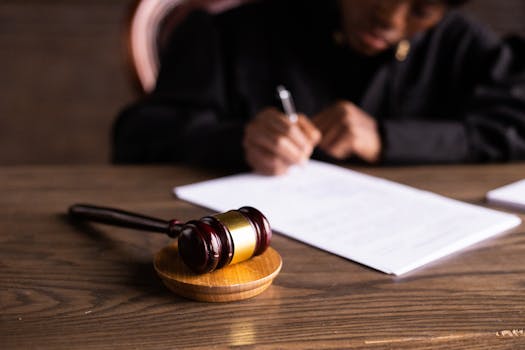What Happens Next? Unveiling the Secrets of Signing a Purchase Agreement
Introduction from My Conveyancing Specialist
The door creaks open, and you step into the world of property transactions with the signing of a purchase agreement. But, as you gaze at the ink drying on this legally binding document, a question bubbles up in your mind, “What happens next?” This article, titled ‘What Happens Next? Unveiling the Secrets of Signing a Purchase Agreement’ aims to shed light on the subsequent steps after signing a purchase agreement in real estate transactions.
Whether you’re a first-time homeowner or a seasoned property seller, understanding the post-agreement process is crucial for a seamless transaction. This process involves several stages, from paying the deposit to picking up the keys to your new property. Each step is designed to ensure transparency, legality, and customer satisfaction, making it vital for you to grasp its intricacies.
In this article, we will guide you through the maze of property transactions, explaining every step in a simple, easy-to-understand manner. By the end, you will have a clear understanding of what happens after you sign a purchase agreement, equipping you with the knowledge to navigate the property market confidently. Plus, you’ll learn how our conveyancing and survey services at My Conveyancing Specialist can save you time and money, making your property transactions a breeze. Buckle up, and let’s dive right in!
Understanding the Purchase Agreement
What is a Purchase Agreement?
Just like a map outlines your journey, a purchase agreement is a roadmap guiding your real estate transaction, replete with essential details about the property, price, terms, and conditions. It’s not just a document but a legally binding contract between the buyer and the seller. Once signed, it sets the stage for the ensuing steps in the property buying process, from arranging for a loan and conducting a home inspection to finally picking up the keys to your new home.
The purchase agreement includes vital information like the agreed-upon price, property details, deposit amount, completion date, and any contingencies such as the requirement for a satisfactory home inspection or loan approval. It’s the bedrock on which the entire transaction rests, making its understanding crucial for both buyers and sellers.
Importance of a Purchase Agreement in Real Estate Transactions
The importance of a purchase agreement in real estate transactions cannot be overstated. It serves as a protection mechanism for both parties, outlining their rights and responsibilities and ensuring transparency in the process.
From a buyer’s perspective, the purchase agreement provides a clear timeline for when particular tasks need to be completed, such as securing a loan, conducting a home inspection, and paying the earnest money deposit. It also provides them with a legal recourse if the seller fails to uphold their end of the bargain, for instance, by not fixing identified issues before closing.
For sellers, the purchase agreement ensures they receive the agreed-upon price for the property and outlines the circumstances under which the buyer can back out of the deal. This agreement plays a crucial role in mitigating any potential legal challenges to the ownership of the property.
Moreover, the purchase agreement also brings the role of a conveyancing solicitor into play, who guides you through the pre-contract, post-contract, and completion stages, ensuring that the purchase agreement aligns with your expectations and that all legal details are enacted for the transaction to be legally binding.
In essence, the purchase agreement is the cornerstone of any property transaction, providing a sense of security and certainty to both the buyer and the seller. It’s the first major step towards making your dream of homeownership a reality, and understanding its ins and outs is absolutely vital.
After Signing the Purchase Agreement: The Initial Steps
Now that you’re familiar with the significance of the purchase agreement, let’s dive into the critical steps that follow signing this essential document. The journey to homeownership after signing the purchase agreement is a well-orchestrated sequence of events that requires attention to detail and prompt action.
Paying the Deposit: The First Step
The first significant phase that follows signing a purchase agreement is the payment of the deposit. This payment is typically made to the real estate company handling the sale and is held in an escrow account. The deposit, also referred to as earnest money, goes towards the total purchase price of the property. It’s important to note that this deposit is non-refundable, so it’s crucial to ensure that you’re fully committed to the purchase before proceeding.
This initial financial commitment is a show of good faith to the seller, demonstrating your serious intent to purchase the property. It’s a key step in the transaction process, and your ability to promptly make this payment can significantly influence the smooth progression of the property transaction.
Signing and Exchanging Contracts: The Legal Aspect
Following the deposit payment, the next stage involves the signing and exchanging of contracts. This process is anchored by a document known as the conveyancing contract. This contract encapsulates the legal agreement of purchase/sale between you – the buyer – and the seller.
The conveyancing contract outlines the terms of the sale, including the agreed property price, the completion date, and the amount of deposit paid. Once this contract is signed and exchanged between the parties, the property exchange becomes legally binding. The completion date, often agreed upon before the contracts are exchanged, is then inserted into the contract, making it legally binding as well.
The conveyancing contract is prepared by the property seller’s conveyancer and submitted to your conveyancer for agreement or potential amendments. This part of the process requires careful review and attention to detail from both parties to ensure that all terms are mutually agreed upon and legally sound.
The signing and exchange of contracts is an important legal aspect of buying a property. It’s a procedural element that reinforces the legally binding nature of the property transaction and offers legal protection to both the buyer and the seller.
By understanding and promptly executing these initial steps after signing a purchase agreement, you set the stage for a smoother, more efficient journey to homeownership. In the next sections, we’ll delve deeper into the subsequent stages involved in this process.
Ensuring Protection: The Role of Insurance
As we journey further into the process after signing a purchase agreement, one crucial step that cannot be overlooked is the acquisition of insurance. This might raise questions such as why is insurance essential in real estate transactions? How can one ensure they are adequately covered? This section aims to answer these questions and more, guiding you through the importance of insurance and how to make sure your new home is properly protected.
Why Insurance is Crucial in Real Estate Transactions
The necessity of insurance in real estate transactions cannot be overstated. It serves as an essential layer of protection for your most significant investment: your home. Insurance for new builds, for instance, guarantees that the developer is accountable for any issues that may arise during the initial years of the property.
This includes structural defects and faults that might occur, the cost of which can be financially draining without proper coverage. Most new build warranties in the UK provide coverage for builder’s defects for the initial two years, and major structural issues from the third year onwards. This insurance ensures peace of mind, making it a non-negotiable aspect of the home buying process.
Additionally, insurance is often a requirement by mortgage lenders. They need to ensure that their investment is protected against unforeseen circumstances, such as fire, theft, or natural disasters.
How to Make Sure You are Adequately Covered
To ensure that you are adequately covered after signing a purchase agreement, there are a few steps you should follow.
Firstly, work with your conveyancing solicitor to verify your warranty and insurance coverage. They will assess whether the warranty provider is satisfactory to the mortgage lender, and that it covers the necessary aspects of your new property.
Next, make sure to get building insurance and, if applicable, contents insurance, which should be in place by the completion day. This insurance covers the structure of your home and your belongings inside it, respectively.
Also, it’s important to understand the terms of your policy completely. Know what is covered and what is not. If you have expensive items or specific concerns, like flood damage in a flood-prone area, talk to your insurance provider about adding additional coverage.
Finally, always remember that your insurance needs may change over time. Regularly review and update your policy to ensure it continues to provide the coverage you need.
In conclusion, insurance plays a pivotal role in safeguarding your investment after signing a purchase agreement. It ensures that you are financially protected against unexpected damages or defects. By understanding its importance and ensuring you are adequately covered, you can confidently move forward in the process, secure in the knowledge that your new home is protected.
Setting the Completion Date: The Countdown Begins
As you embark on the journey of buying a property, the completion date serves as the finish line. This is the day you finally get to call your new house a home.
How the Completion Date is Determined
Setting a completion date is a collaborative effort involving the buyer, the seller, and their respective legal representatives. The timeline can vary greatly depending upon a host of factors, including the length of the property chain, the readiness of the buyer’s financing, and the seller’s moving arrangements.
Typically in the UK, a two-week window is allocated between contract exchange and completion. However, this can be adjusted to suit the specific needs of the parties involved. For instance, if you need more time to prepare for the move, your solicitor can negotiate a longer period between exchange and completion.
What Happens on the Completion Date
The completion date is not just about picking up the keys and popping the champagne. It marks the final transfer of funds from the buyer to the seller, and the legal transfer of ownership.
On this day, the money is transferred from the buyer’s conveyancer to the seller’s. Once the seller’s conveyancer confirms receipt of the funds, the property’s ownership is officially transferred to the buyer. It’s also on this day that your solicitor or conveyancer will register your name on the company register if you have a share of freehold.
Moreover, the completion date is also when the seller or the estate agent hands over the keys to the property. This handover can occur either at the property itself or at the estate agent’s office.
Remember, it’s crucial to keep all parties, including your solicitor and estate agent, in the loop to ensure a smooth and seamless handover on the completion day.
As a property buyer, understanding the significance of the completion date and what happens on this day can make the home buying process less daunting and more exciting. And with the right conveyancing and survey service, you can navigate this process with confidence and ease.
The Role of the Lender: Releasing the Funds
As the curtains rise on the next act of your home buying journey, the spotlight shifts to the lender. Their role? To release the funds for your property purchase. This is a pivotal moment in the process, and understanding how it works can provide you with valuable peace of mind.
How the Lender Releases the Money
Once the contracts have been exchanged and the completion date is set, the stage is set for the lender to make their move. The process begins when the lender receives a Certificate of Title from the buyer’s solicitor. This document contains critical information about the property’s history of ownership and a complete legal description of it.
Upon receipt of the Certificate of Title, the lender releases the funds to the buyer’s solicitor. This is usually done via a bank transfer. The solicitor then holds the funds in a client account, ready to be transferred to the seller’s solicitor on the completion date. This step ensures that the money is available when needed, allowing the purchase to proceed smoothly.
What Happens if There are Delays in Fund Release
In the world of property transactions, time is of the essence. Delays in fund release can potentially disrupt the carefully planned timeline and cause unnecessary stress. So, what happens if there are delays in the release of funds?
Before releasing the money, the lender conducts a final check to ensure your circumstances haven’t changed. If something raises a red flag – such as sudden changes in your credit rating or large purchases – this could cause a delay.
If the lender does delay the fund release, it’s crucial to communicate with your solicitor immediately. Your solicitor can help navigate any issues and negotiate a new completion date if necessary.
Remember, having a professional and reliable conveyancing and survey service on your side can make all the difference in these situations. At My Conveyancing Specialist, we pride ourselves on providing a transparent, tailored service that keeps you informed and in control every step of the way. Trust us to guide you through the process, ensuring a smooth transition from signed purchase agreement to picking up your new keys.
Final Checks: Ensuring Everything is in Order
Dotting the i’s and crossing the t’s—that’s what the final checks in a real estate transaction are all about. It’s the pivotal phase that seals the deal, ensuring both parties can walk away from the table satisfied and confident. Let’s delve a bit deeper into exactly what these checks are and why they’re so fundamental in the process after signing a purchase agreement.
What are the Final Checks in a Real Estate Transaction
The final checks encompass several crucial aspects of the buying process. For starters, the lender performs a last-minute review to confirm your financial situation hasn’t changed drastically since your loan approval. Any significant changes could potentially impact your credit rating or your ability to repay the loan, which could jeopardize the entire transaction.
In addition to the lender’s final confirmation, it is also the perfect time to schedule a final property inspection. This inspection ensures that any agreed-upon repairs have been carried out and that the property remains in the condition as when the offer was accepted. It’s essentially your last line of defense against any unwelcome surprises after moving in.
Lastly, ahead of the property’s transfer of ownership, it’s necessary to ensure all financial arrangements such as mortgage funds or deposit payments are in place and ready for an easy fund transfer.
Why Final Checks are Important
The importance of these final checks cannot be overstated. They serve as the safety net, preventing any last-minute hiccups and ensuring you’re stepping into your new home with your eyes wide open.
The financial review safeguards against potential issues down the line with your mortgage repayments. It reinforces the lender’s confidence in your ability to repay your loan, critical for the completion of the purchase.
The final property inspection, on the other hand, is your last chance to address any potential issues with the house. It provides a layer of protection, ensuring that you are moving into a home that is up to standard and that the condition agreed upon in the contract is met.
Finally, having all the financial arrangements in order makes for a smooth transfer of funds, ensuring no delays or complications on the completion day.
The journey from signing the purchase agreement to moving into your new home is filled with multiple steps. Each one is vital, but these final checks are the crux, ensuring you cross the finish line with your best foot forward. At Moving Sorted Ltd, we are committed to making this process as seamless and stress-free as possible, supporting you every step of the way.
The Seller Receives the Money: The Final Step
As the adage goes, the proof of the pudding is in the eating. Similarly, in a property transaction, the final proof of completion is when the seller receives the money. This is the defining moment when the deal officially closes. But how exactly does this happen and what follows next?
How the Seller Receives the Money
Once the lender has released the money and the buyer’s solicitor has conducted the final checks, the next significant step is the transfer of funds. Upon the buyer’s solicitor receiving the funds from the lender, they promptly forward it to the seller’s solicitor. This is a crucial moment in the transaction, as it signifies the completion of the sale. The money transfer process is usually carried out electronically to ensure speed and security, thus reducing the risk of delays or complications.
What Happens After the Seller Receives the Money
Upon receiving the funds, the seller’s solicitor then has a series of tasks to perform. Firstly, they have to settle any outstanding mortgage on the property. This is an essential step as it clears any debts tied to the property, allowing the buyer to start their new chapter without any financial burdens from the past.
The seller’s solicitor also needs to pay the estate agent’s fees. This is usually a predetermined percentage of the sale price, agreed upon at the start of the process. Following these payments, the remaining balance is transferred over to the seller, marking the end of their journey in the property transaction.
However, for the buyer, this is not quite the end. The buyer’s solicitor must now check the deeds and any paperwork they receive. They report to the HMRC, pay any Stamp Duty and register the purchase and mortgage with the Land Registry. While these steps might seem complicated, at My Conveyancing specialist, we aim to streamline these final stages, making them as straightforward as possible for our clients.
In the next section, we’ll dive into the final, exciting step: picking up the keys to your new home. Stay tuned to discover what this entails and what you need to do after this thrilling moment.
Picking Up the Keys: The Moment of Truth
Congratulations! You’ve navigated the complex maze of property transactions, and you’re now standing at the threshold of your new home. The only thing standing between you and crossing it is the set of keys. Let’s delve into how you pick up the keys, and what to do after this significant moment.
How to Pick Up the Keys
The moment of truth, the day you’ve been building towards, is when you collect the keys to your new property. The keys are typically handed over by the seller or the estate agent on completion day. This handover could take place at the property itself or at a designated location such as the agent’s office.
However, remember that coordination is key. Stay in close contact with all parties involved, such as your solicitor and real estate agent, to ensure a seamless handover. They will provide specific instructions and arrange for key collection at an ideal time and place.
What to Do After Picking Up the Keys
Once you have the keys in your hand, it’s time to celebrate and acknowledge your achievement. But don’t rest on your laurels just yet. There are a few crucial steps to take care of after you’ve picked up the keys.
First off, arrange for utilities such as gas, water, electricity, and internet to be transferred into your name. Next, set up insurance for your new home if you haven’t already. It’s also time to notify your employer, banks, and other relevant parties of your new address.
Once these details are taken care of, it’s time to start moving in. Schedule a moving date, start packing, and get ready to make your new house a home. Remember to create a budget for your new home, taking into account any changes in utility bills, property taxes, and other expenses.
Lastly, remember to breathe and enjoy the process. Moving can be stressful, but it’s also the start of a new chapter in your life. By staying organized and calm, you’ll ensure that everything falls into place, and you’ll be enjoying your new home before you know it.
In the end, the journey from signing a purchase agreement to picking up the keys is a rollercoaster ride of legalities, finances, and logistics. But with careful planning, expert guidance, and a little bit of patience, you’ll arrive at your destination: the doorstep of your new home.
Conclusion
Recap of the Process After Signing a Purchase Agreement
After a thrilling ride of paperwork and procedures, you’re now standing at the precipice of a new chapter in your life. Let’s take a moment to look back and appreciate the intricate process that got you here. After signing a purchase agreement, you embarked on an intricate sequence of steps. From paying the initial deposit, to the exchange of contracts, followed by obtaining the necessary insurance, setting the completion date, to the lender releasing the funds, and finally, the seller receiving the money. Each phase in the process plays a crucial role in making your dream home a reality.
But the journey doesn’t stop here. After the seller receives the money, the final checks are executed ensuring everything is in order. With the keys finally in your hand, you can step over the threshold into your new home. The process may sound daunting, but with the right guidance, it can be a seamless experience.
How Our Conveyancing and Survey Services Can Help You
At Moving Sorted Ltd, we understand the complexities of the property buying process. Our expert conveyancing and survey services are designed to make your journey stress-free and efficient. With us, you’re not just getting a service, you’re gaining a partner. We strive to provide you with transparency, tailored services, and help you save time and money in the process.
Whether it’s dealing with legal documents, handling financial transactions, or conducting property surveys, our team of professionals is dedicated to ensuring your satisfaction. We will walk you through the process, answer all your questions, and ensure that every step is taken care of, right down to the pickup of your keys.
Call to Action: Visit Our Website for More Information
Ready to take the first step towards your dream home? Visit our website today and discover how My Conveyancing Specialis can make your property buying journey smooth and hassle-free. Our team is ready to assist you at every step, ensuring you have all the support you need to make your home buying a rewarding experience. You’ve dreamed about this moment, let us help you make it a reality.




